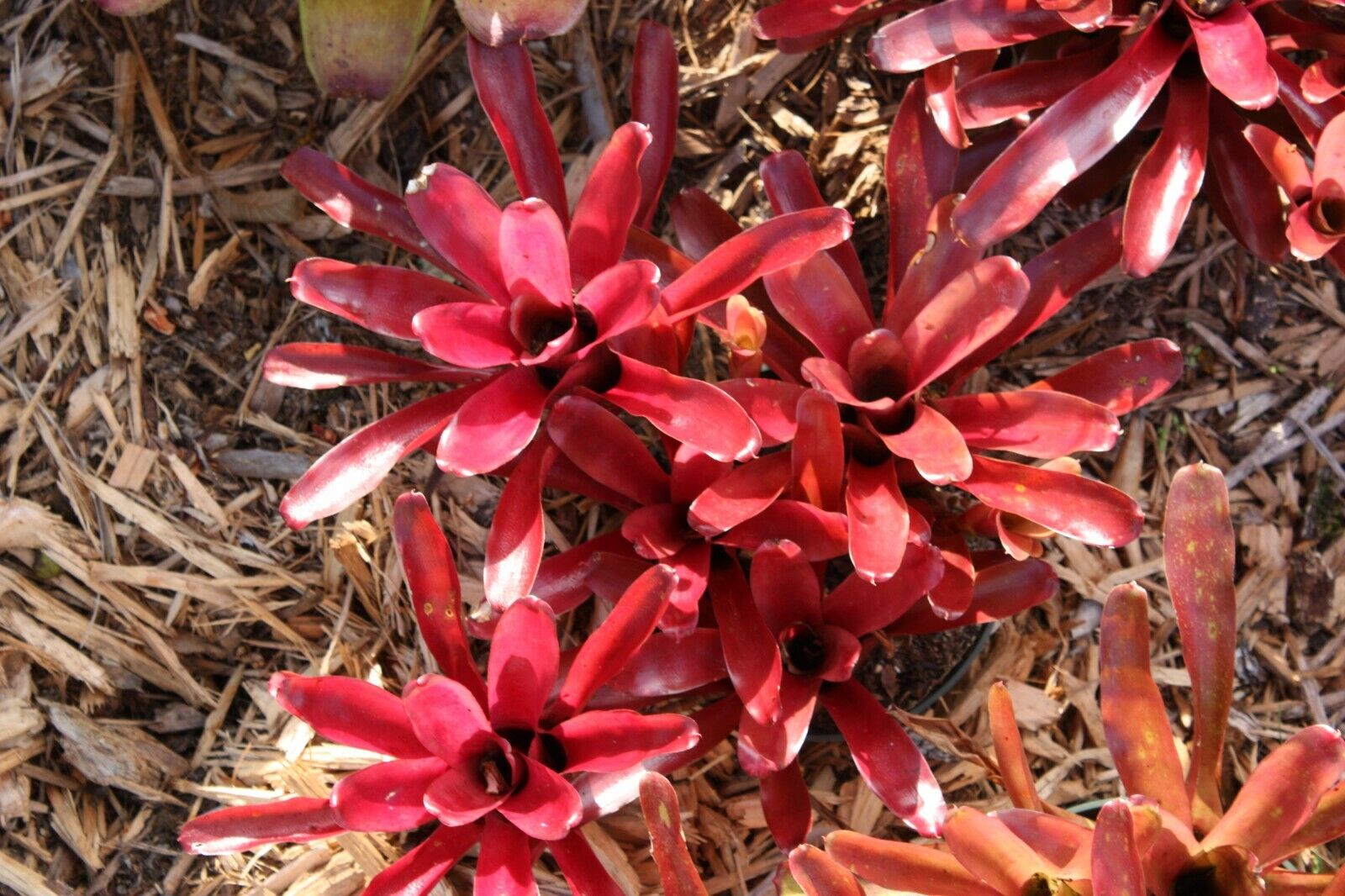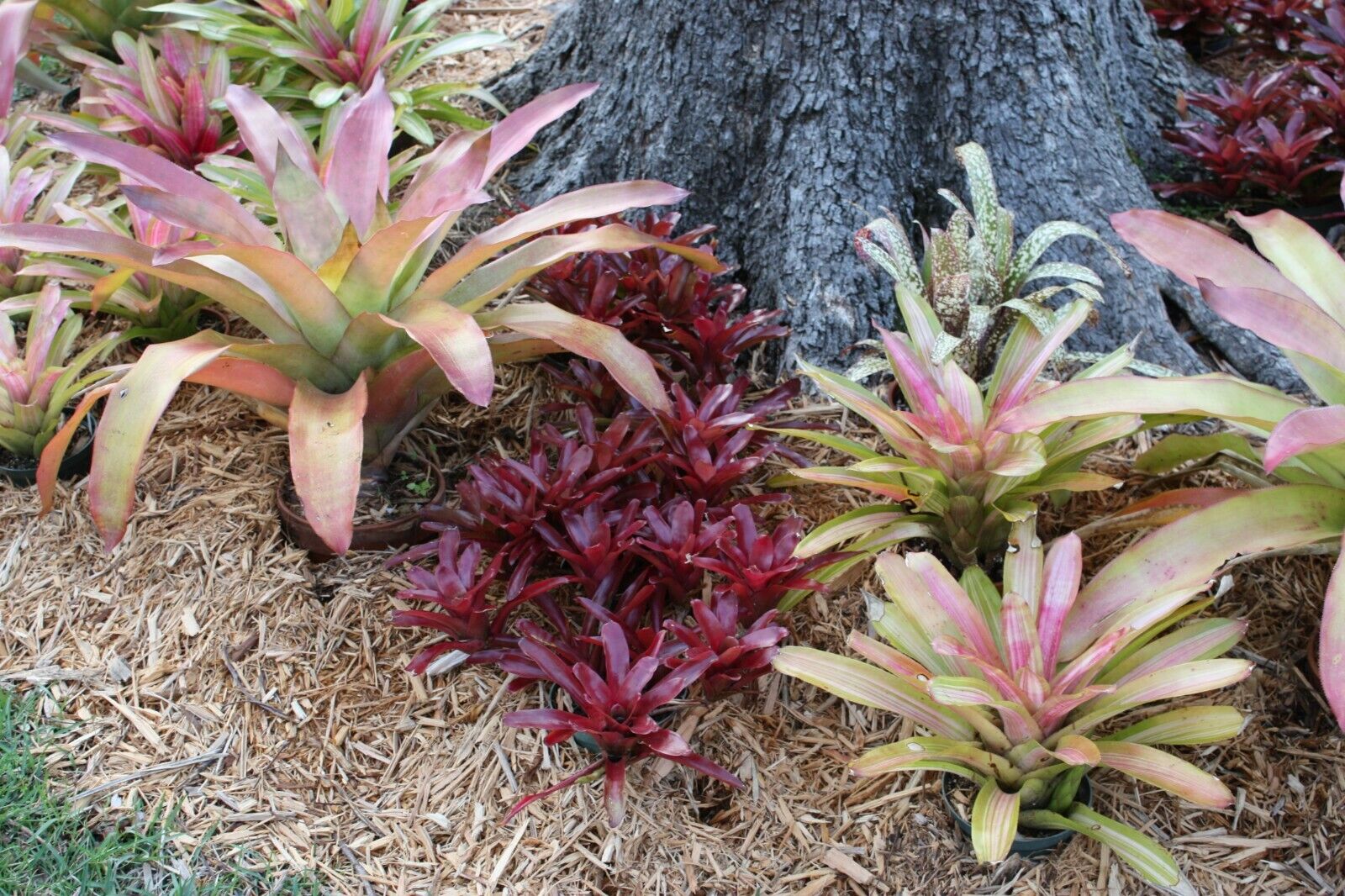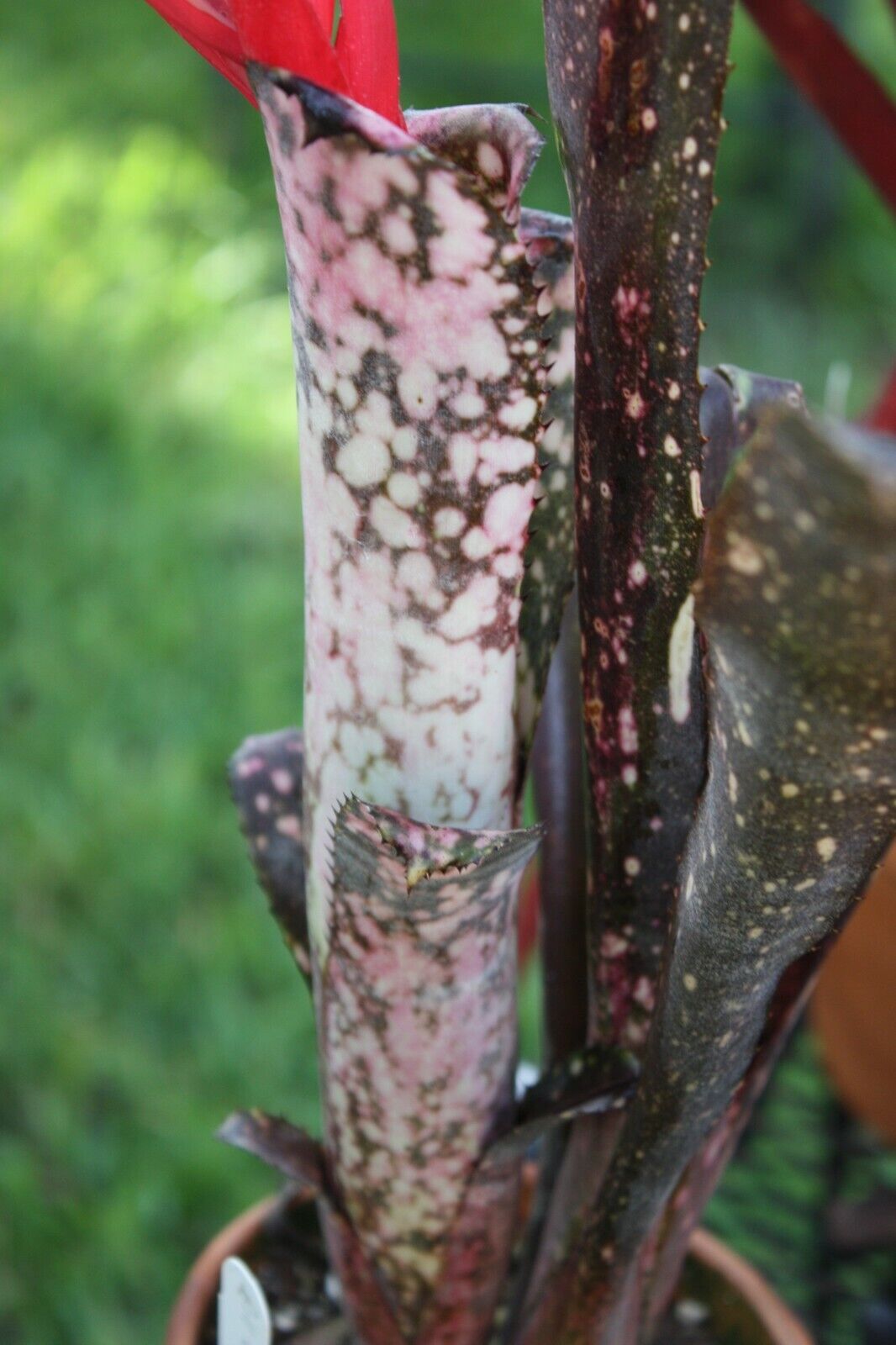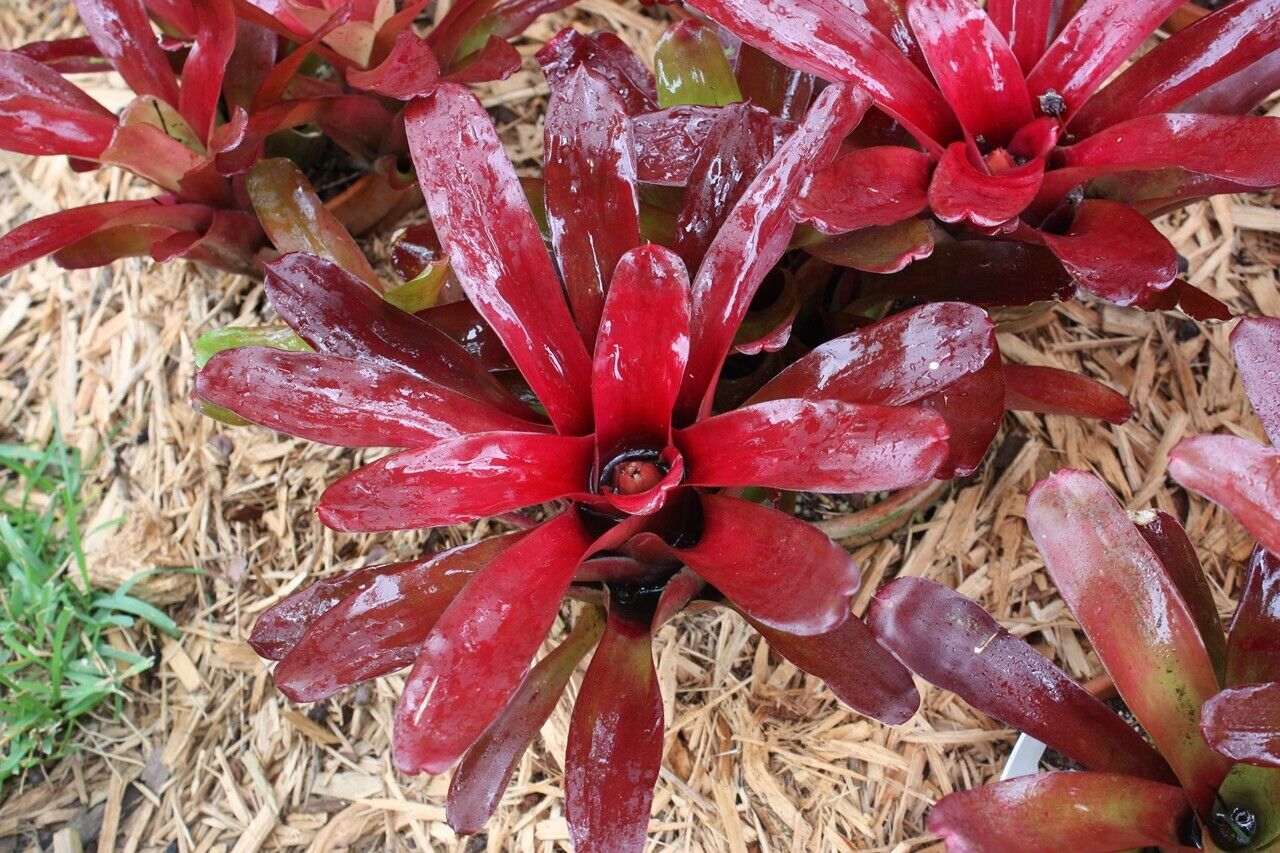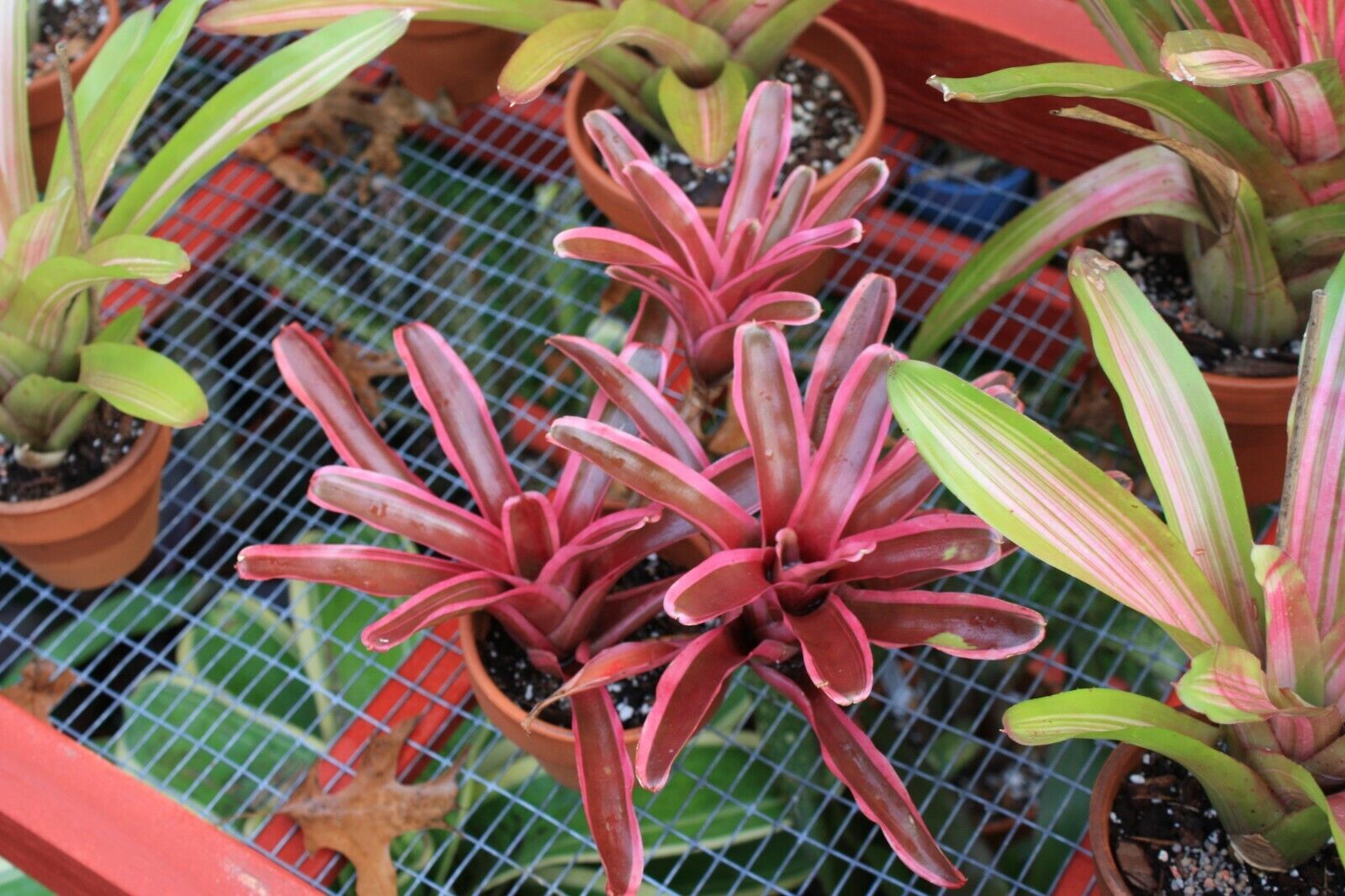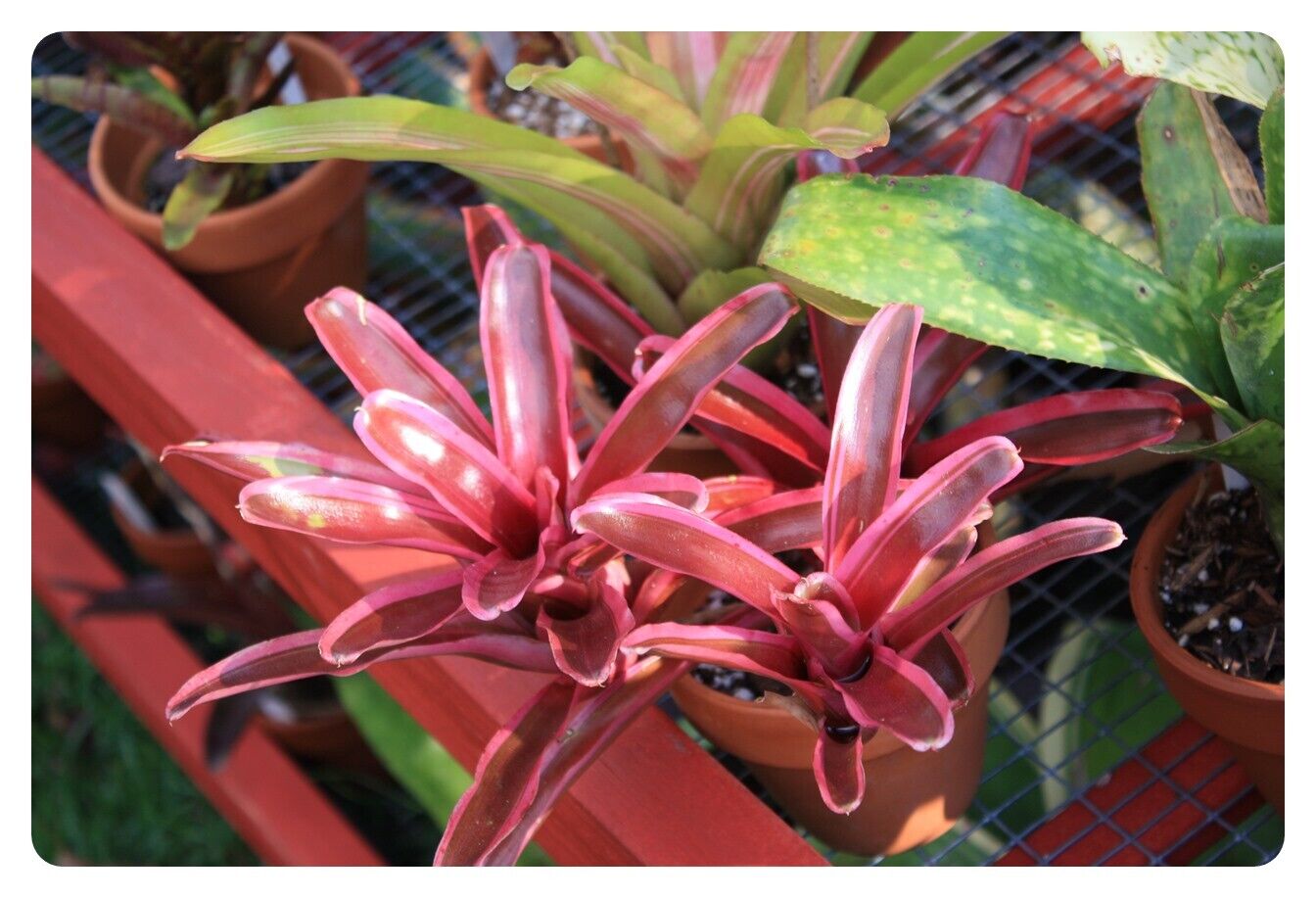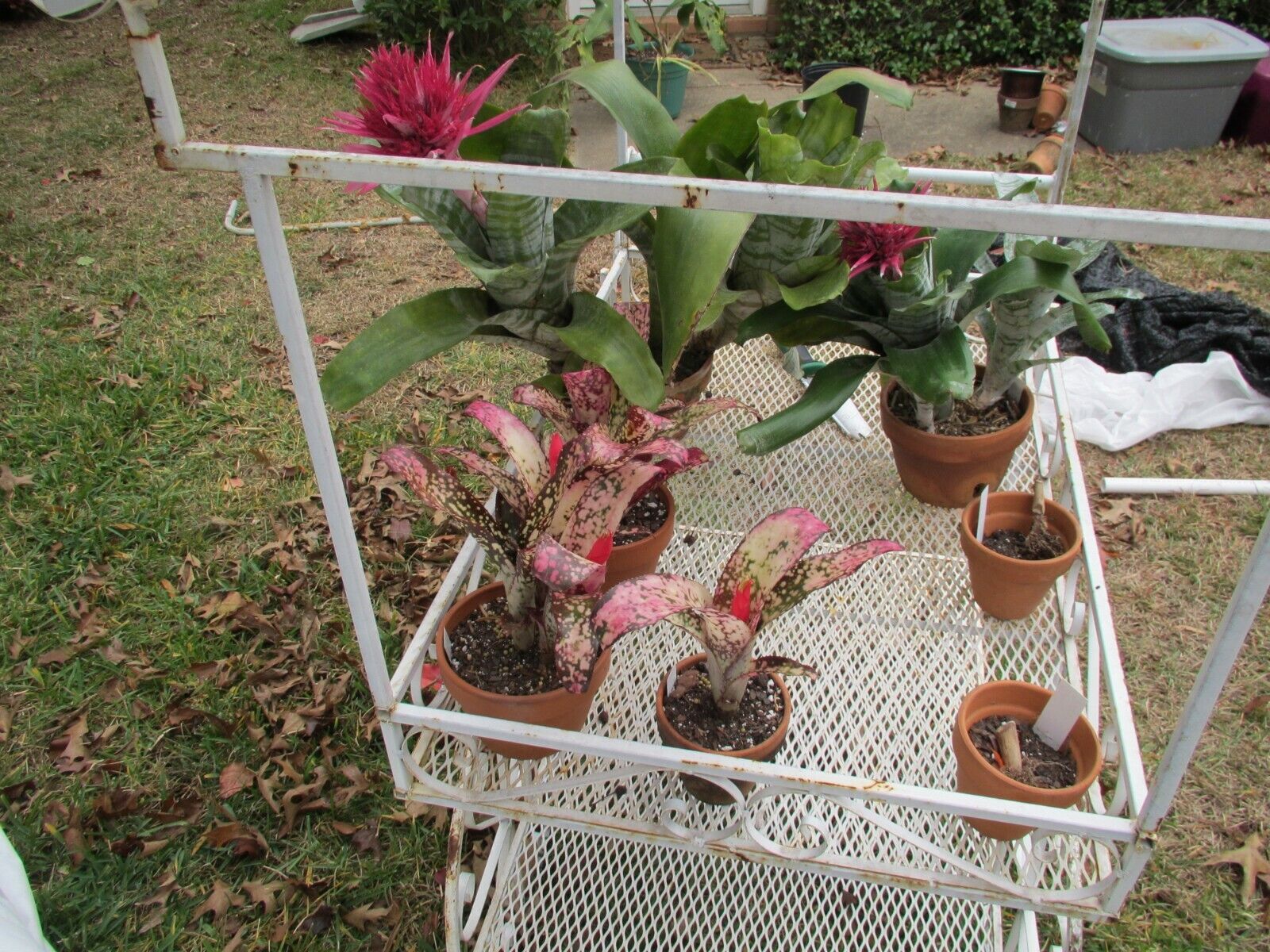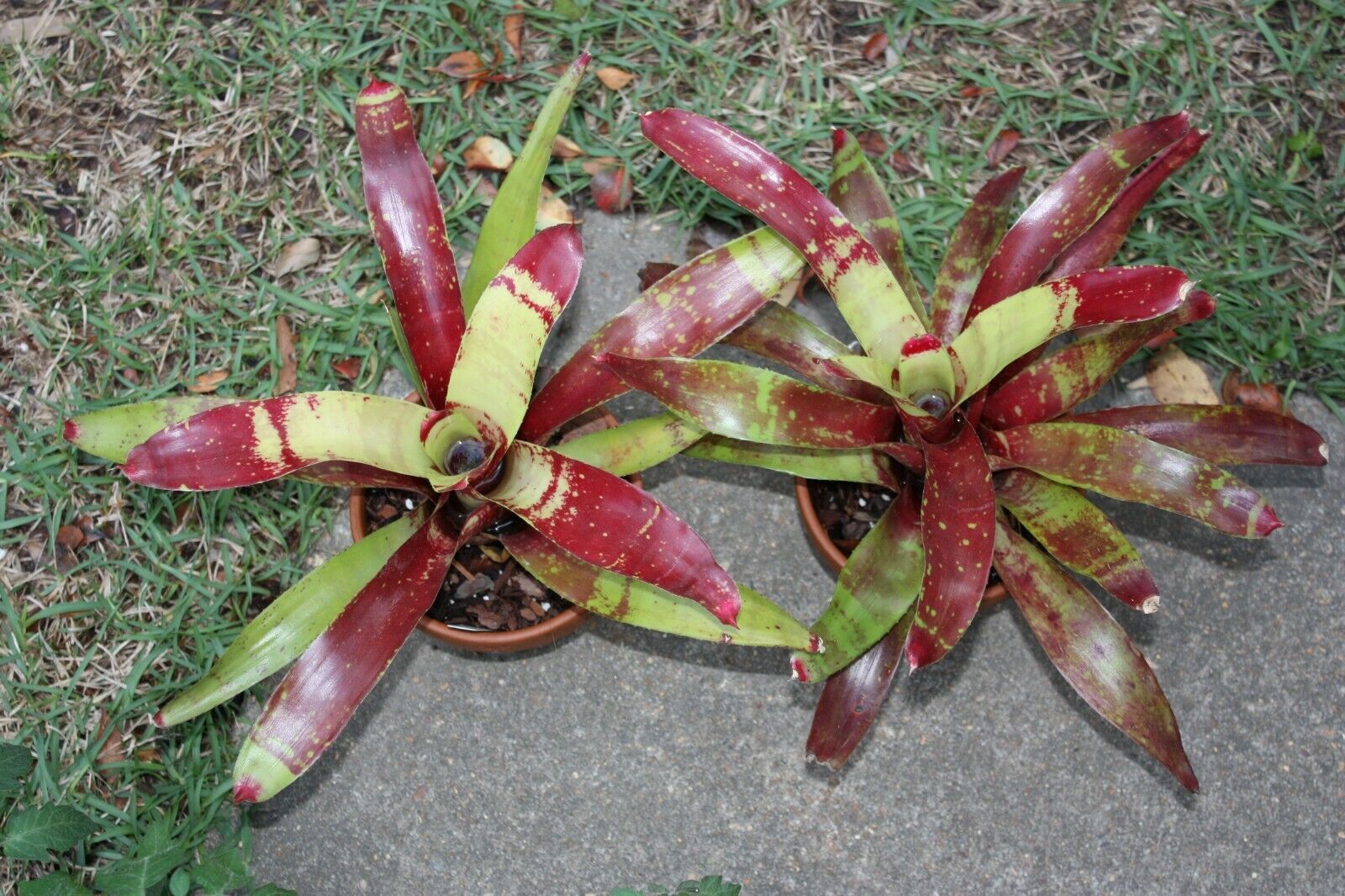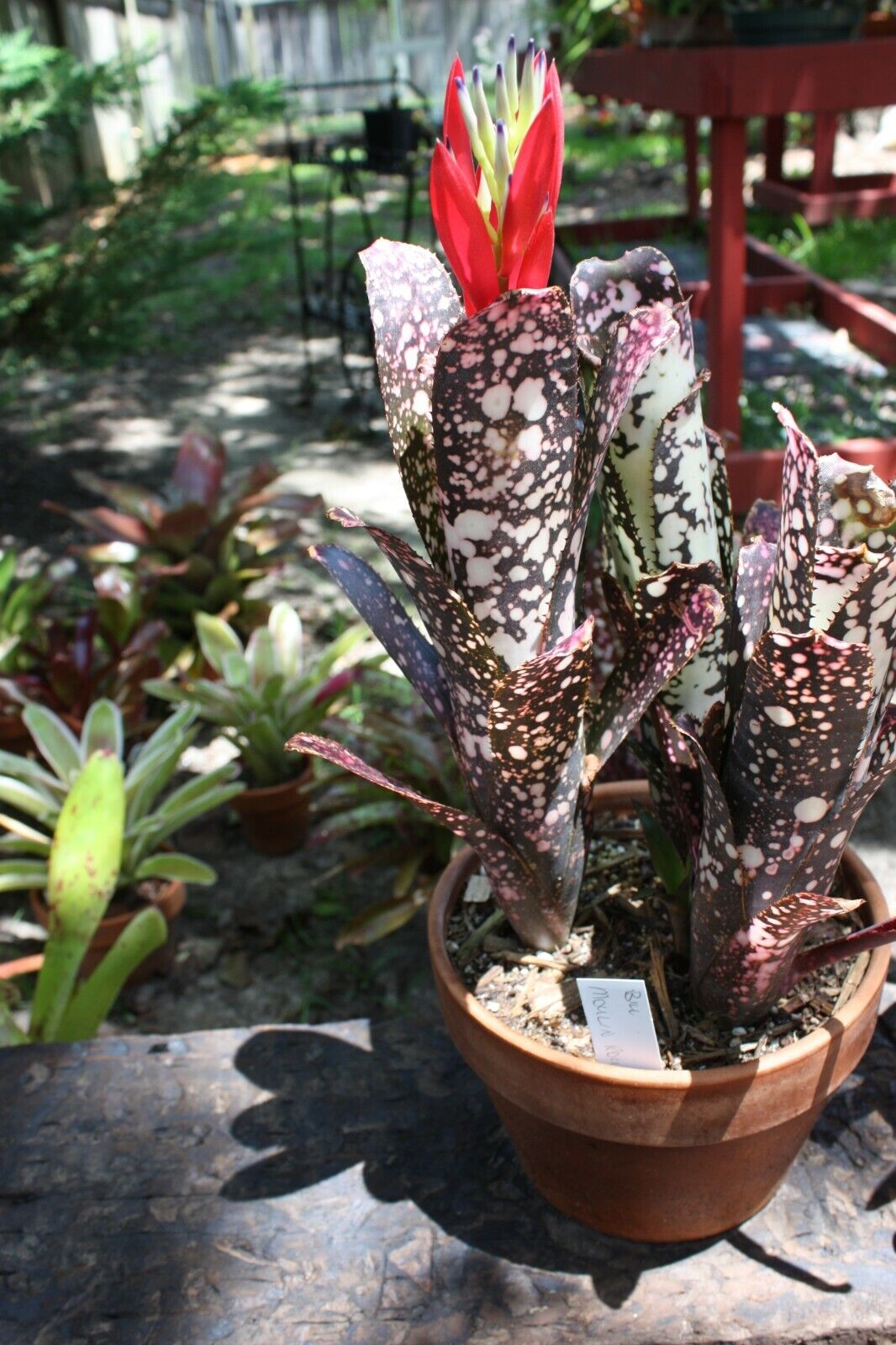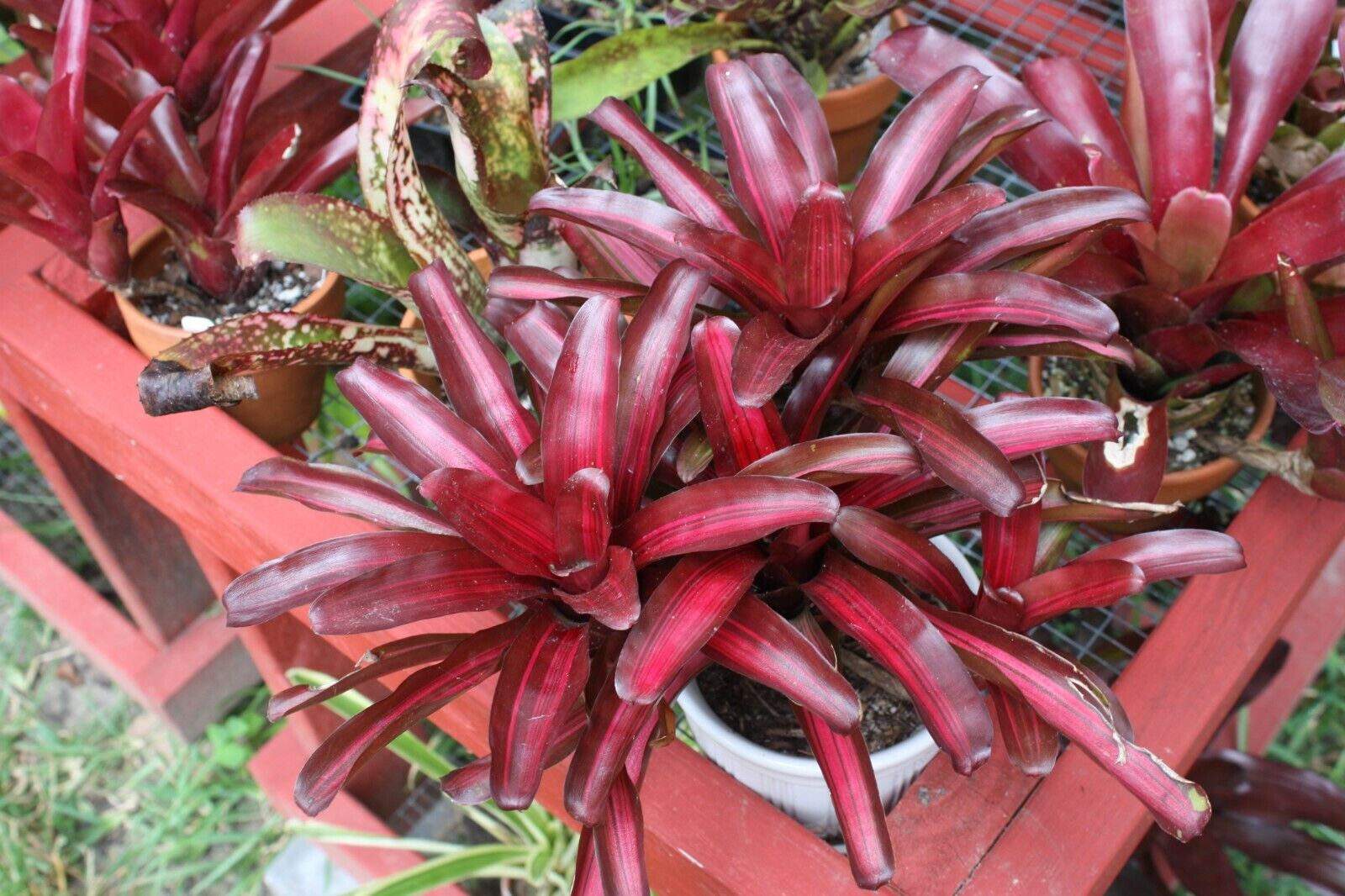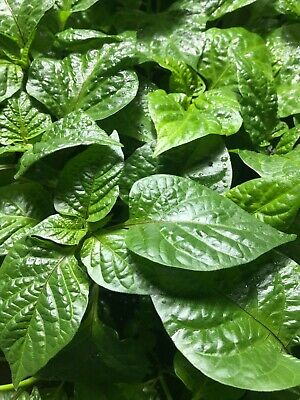-40%
8 assorted bromeliads mix lot SMALL plants neoregelia vriesea billbergia pups
$ 21.12
- Description
- Size Guide
Description
PLEASE BE AWARE OF WINTER WEATHER CONDITIONS WHEN ORDERING!These are TROPICAL PLANTS and can't survive extended exposure to freezing temperatures. If the temperatures in your area are below freezing during the day, please don't order as the plants will probably be damaged in the mail. If night temperatures are below the upper 20s, please make sure to get the plants inside immediately. If your plants are damaged in the mail by cold, regardless, I'll work with you---but please be realistic.
This auction is for a lot of EIGHT SMALL bromeliads shipped to you. Please note that I will pick the particular types from what is currently available to me, but you'll get eight bromeliads from eight DIFFERENT varieties, each from my collection and of a known, named, cultivated variety. It'll be a mix of small plants with a mature size typically 6"-8" across. Each plant will come with a durable tag identifying its variety.
If you order two sets of 8 you'll get 16 different plants from 16 different varieties. If you order three, I'll do my best, but no promises!
BUT please note that the plants in the photographs are adults. YOU WILL NOT BE GETTING ALL ADULT PLANTS. Most of the plants will be juveniles---offshoots---commonly called "pups." The juvenile form of the plant typically doesn't have the mature coloration of the adults. Every plant will be viable, that is, it should survive on its own easily, but it'll be smaller and greener than an adult, and it probably won't have any roots. No soil will be included. Bromeliads are very hardy, though, and will weather shipping easily. Expect most of the plants you get to be immature.
All of these plants grow best in diffuse sunlight or "bright shade." They are very hardy for tropical plants and can endure temperatures below 40 degrees, but they cannot survive frost or hard freezes. They will not tolerate full summer sun in most places.
They are not ideal houseplants unless they're in a relatively bright spot and are best grown outside during the warm months, though they can weather winters indoors as long as they don't freeze.
TLDR: put the plants in bright light for best growth, but full sun will damage them. Don't let them freeze.
MORE DETAILED GROWING INSTRUCTIONS
I'd recommend starting in containers that you can move easily. Most bromeliads don't *require* soil, but if they're rooted somewhere they'll be stronger and grow faster. They don't need much soil and will never get root bound, but as they grow out you'll find that lightweight containers will tip over easily. You can root them in small containers then set them in the ground or in a larger container full of rocks. Don't set them too deep in the soil, and use small sticks or skewers (like you'd grill with) to hold the plants upright while they're rooting. Water by pouring water over the centers of the rosettes. It's best to give the plants space to grow and good ventilation. If you can't get them good ventilation try to change the water or flush it out from time to time. Low night time temperatures will not hurt them unless there's frost or it falls below freezing. Commercial frost cloth works great down to temperatures of 25 or so if the plants are on the ground---follow the manufacturer's directions.
The most important thing to starting bromeliads is light---you want them to get lots of bright light, but avoid direct sunlight if it's bright enough to burn them. It's hard to burn bromeliads in January but in July nearly all varieties will be better off avoiding direct sunlight except in the mornings and evenings. No fertilizer until the plants are established and growing and then use only very small amounts of low-nitrogen fertilizer.
----
Please contact me if you have any questions, or any issues with your order. I will make it right!
